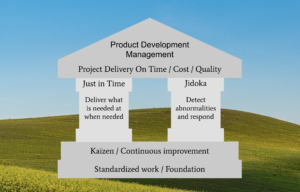How Shuhari Focuses Teams on What Matters:
Creating a detailed project schedule using tools like Microsoft Project is essential. However, a schedule with over 1,000 lines may be useful for a few individuals, such as the project manager, but it’s often too complex for others to fully review or understand. How can we ensure the team comprehends and follows the schedule?



 Imagine a construction project where the initial plan was to build a small cabin, but it gradually morphed into a mansion. Sound familiar? This is the essence of ‘scope creep,’ a common project management nightmare. Uncontrolled changes to the project scope can lead to significant delays, budget overruns, and even jeopardize the project’s success.
Imagine a construction project where the initial plan was to build a small cabin, but it gradually morphed into a mansion. Sound familiar? This is the essence of ‘scope creep,’ a common project management nightmare. Uncontrolled changes to the project scope can lead to significant delays, budget overruns, and even jeopardize the project’s success. “Shuhari” (守破離) is a Japanese word that describes the three stages of learning and mastery. The three stages are:
“Shuhari” (守破離) is a Japanese word that describes the three stages of learning and mastery. The three stages are:
 Shuhari Process and System helps to organize knowledge and information about your project. The knowledge can give your team a significant advantage and influence the success of the project.
Shuhari Process and System helps to organize knowledge and information about your project. The knowledge can give your team a significant advantage and influence the success of the project.

